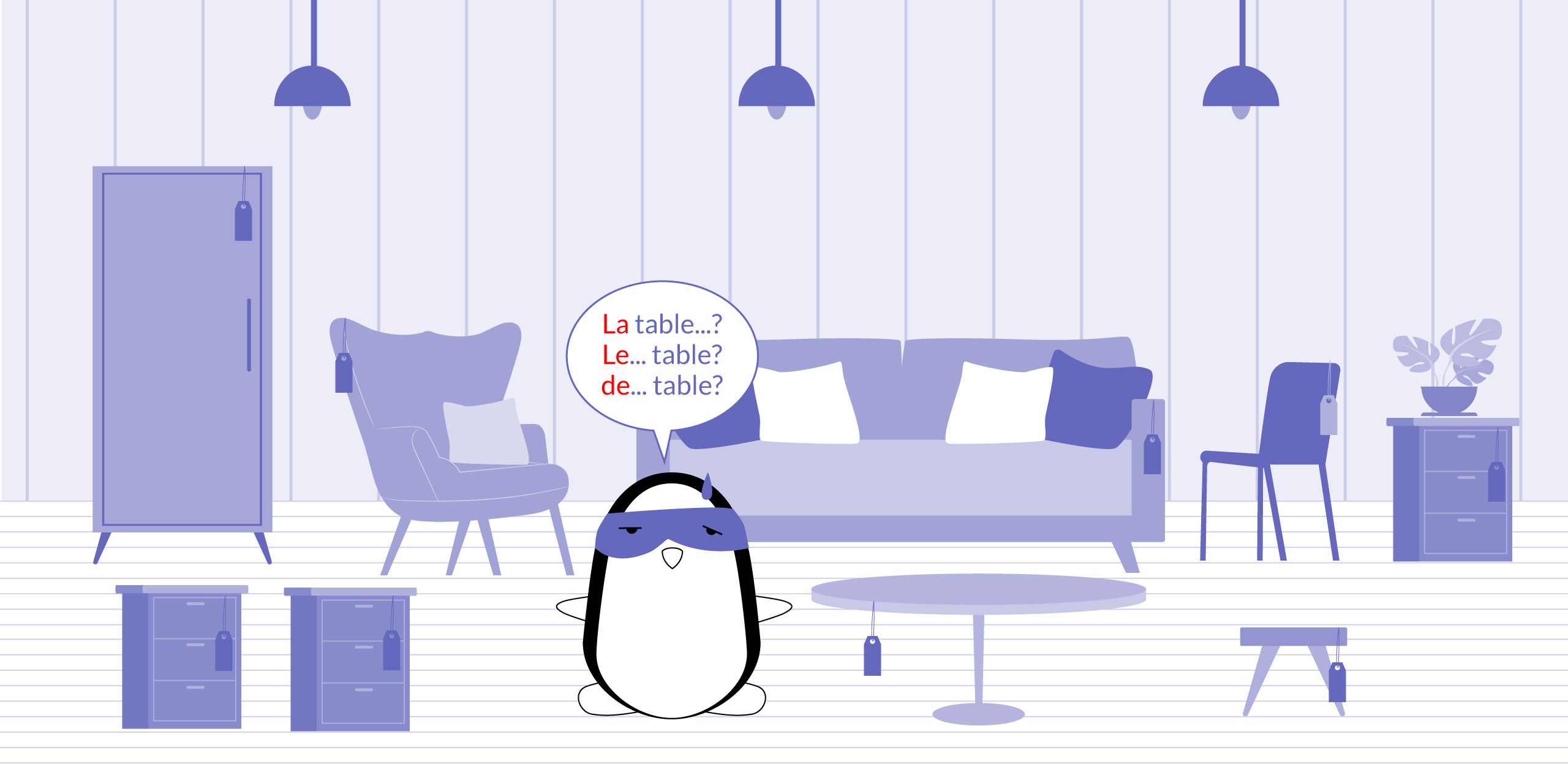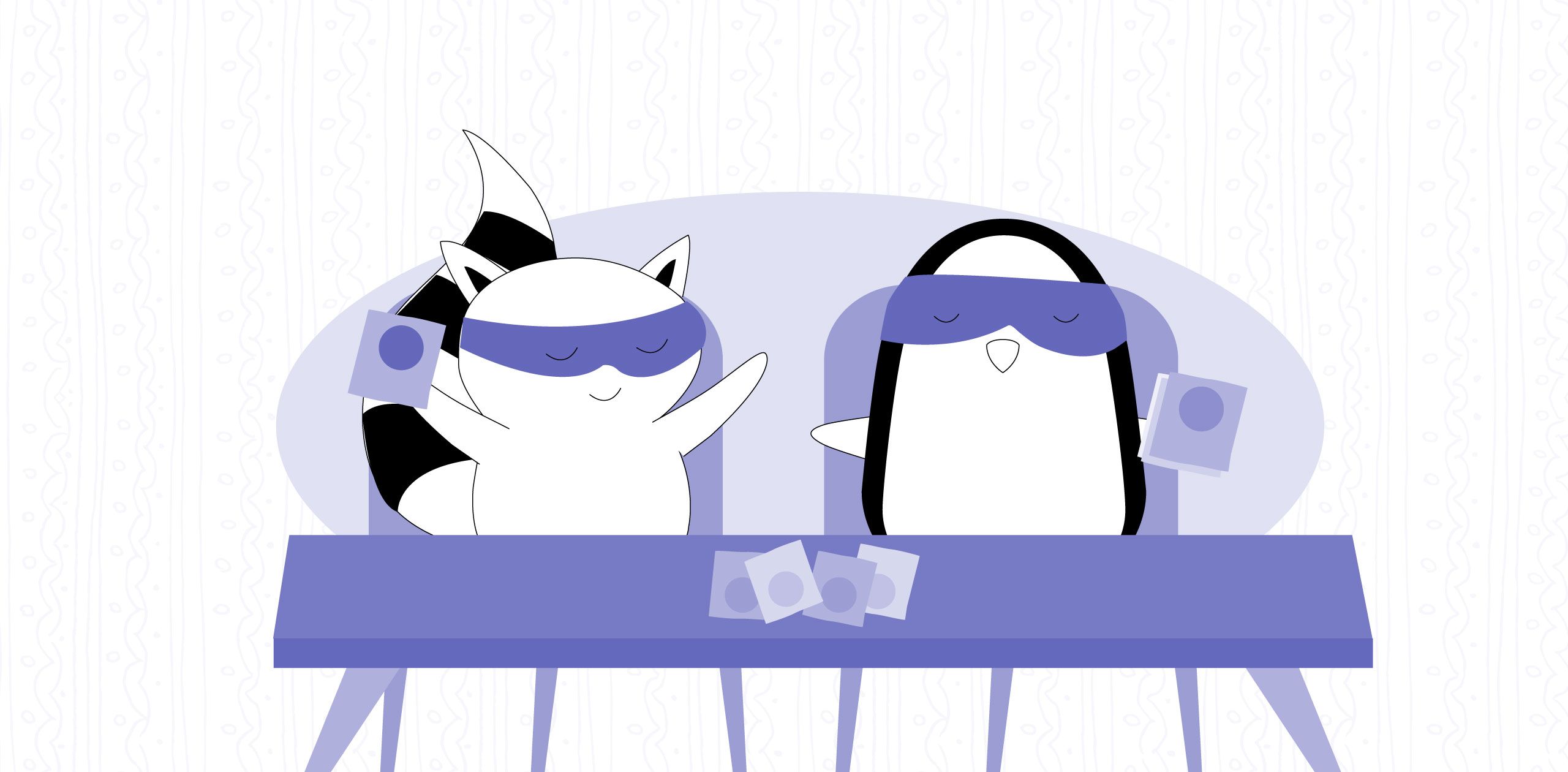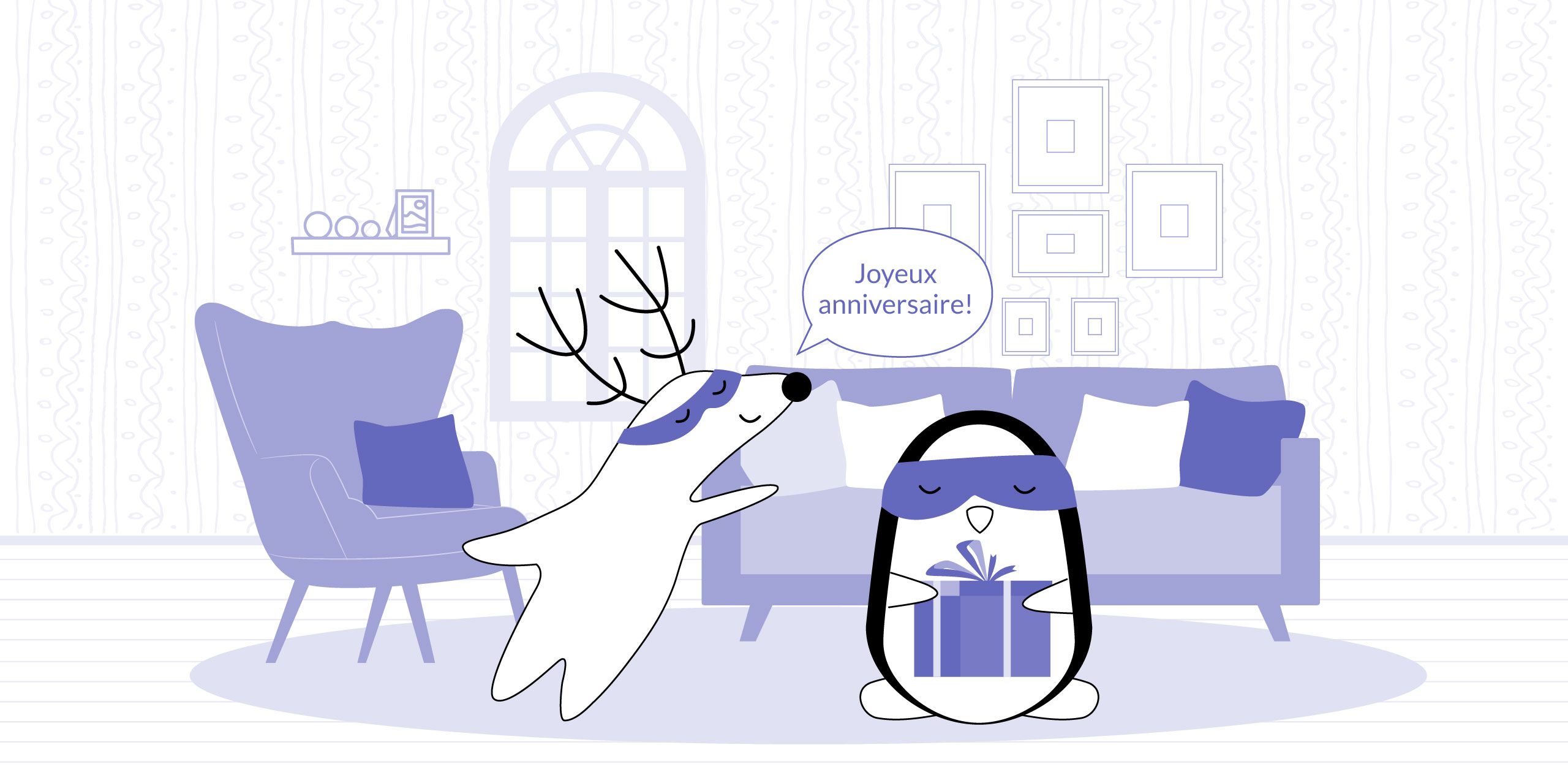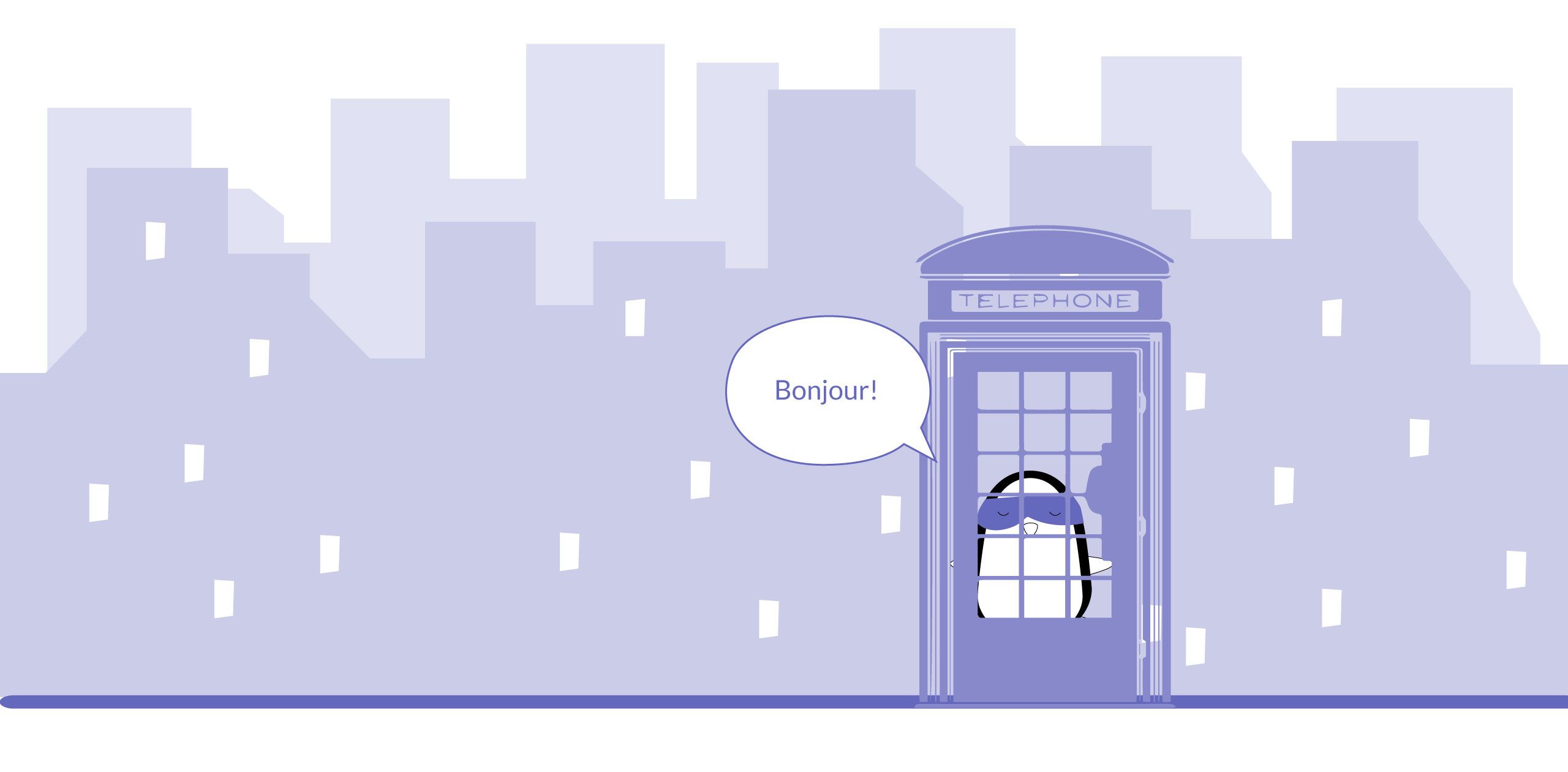
Making a phone call in French can be intimidating for beginners, especially considering that the French love to speak very quickly. When talking to someone on the phone or listening to a French message on an answering machine, you can easily get discouraged from continuing the conversation and just end the call.
But, that is rarely an answer to the issues you need to discuss on the phone, and very often, you will have to call the person once again. Don’t worry, though – while French oral speech can be tricky, after a little bit of practice, you should be able to have polite and successful telephone conversations with ease.
In this article, let us teach you the essentials of French phone call etiquette, from how to say ‘hello’ to introducing yourself and asking for the other person's name. We'll also provide a list of key vocabulary words that you'll need to know, so that you can have a simple French phone call right away.
Whether you're calling your friends or family in France or someone else in a French-speaking country, read on for all the information you need.
Learn French with Langster
Phone Conversation: The Script
Just like in English, a phone call in French usually follows a specific script that has a beginning, a middle, and an ending. This should make it much less stressful to make a call; just learn the lines and concentrate on explaining exactly why you’re calling.
Usually, a typical phone call will look something like this:
– Hello, this is N speaking, can I talk to Y?
– Wait a moment please, I’ll put you through. // Yes, this is them.
– I would like to talk about….
– ….
– Thank you, have a nice day, goodbye.
– Goodbye.
Simple enough, isn’t it? Now, let’s figure out how to say all that in French.
Basic Phone Call Vocabulary
Here’s all the basic vocabulary you’ll need to run a successful phone conversation in French.
Starting the Call
Use these phrases to start phone calls in a casual way – for example, when talking to a friend:
French
English
Allô?
Hello? (used only on the phone)
Bonjour.
Hello, good morning.
C'est de la part de Y. | C'est Y à l'appareil.
This is Y calling.
C’est N est là? C’est N est disponible?
Is N available?
Qui est à l’appareil ?
Who is on the phone?
Use the following phrases for more formal phone conversations, such as calling someone’s office:
French
English
(Name of the company, person), bonjour
Hello, this is (name of the company) – formal
Puis je vous aider ?
Can I help you?
Puis-je parler à N?
Can I talk to N?
Je voudrais parler à N.
I would like to speak to N.
Est-ce le bureau de N?
Is this N’s office?
C’est de la part de qui ?
Who is calling | speaking, please?
Making a Phone Connection and Leaving a Message
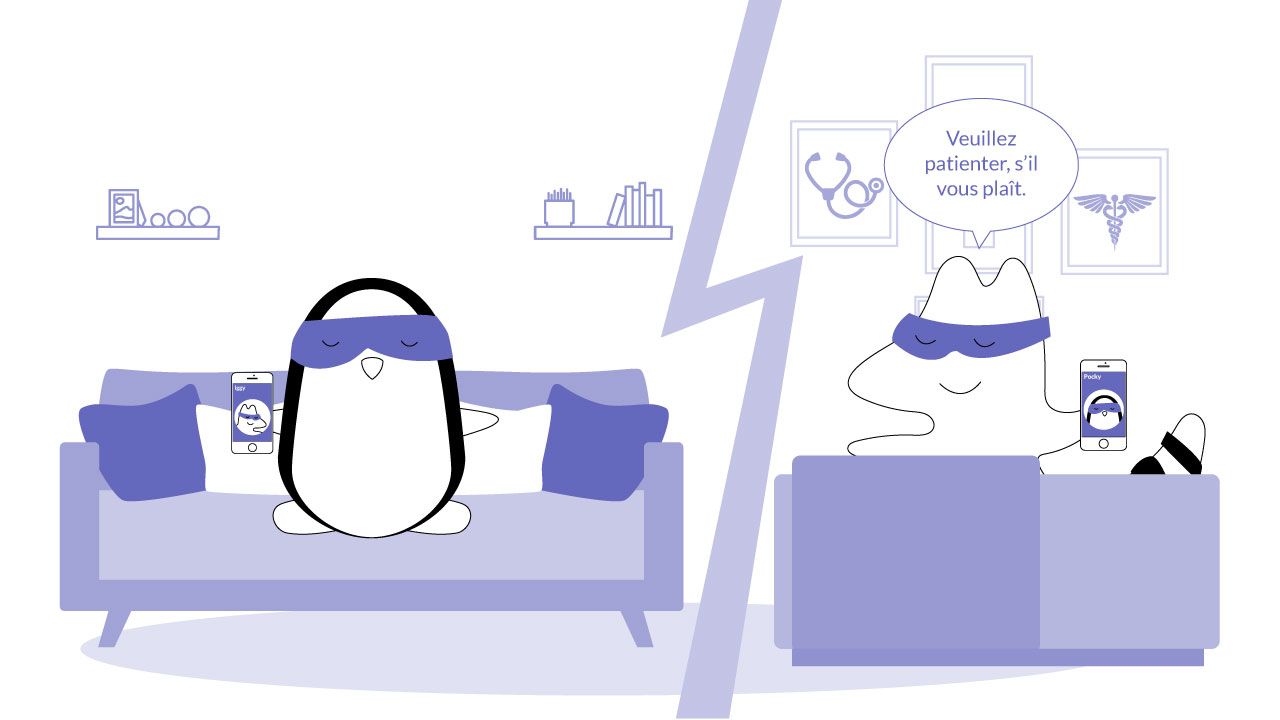
Very often, when making a phone call, you will need someone to connect you to the person you want to talk to – or, in many formal cases, wait on the line. Here’s what you might hear then:
French
English
Ne quitte pas.
Please hold.
Je te le passe.
I'm transferring your call.
Ne quittez pas (la ligne).
Please hold.
La ligne est occupée.
The line is busy.
Je vous le passe.
I'm transferring your call. – formal.
Merci de vouloir patienter quelques instants.
Wait a moment, please. – formal
Veuillez patienter, s’il vous plaît.
Be so kind as to wait please. – formal
Je suis désolé(e). N est en réunion. Voulez-vous laisser un message ?
I’m sorry, N is in a meeting. Do you want to leave a message?
Dealing with Technical Difficulties
Whether you’re talking on a cell phone or a regular telephone, it’s very common that you might encounter some technical difficulties. Dropped calls and bad reception are some of the main things that prevent us from communicating smoothly – and if they happen, you need to know how to handle them.
French
English
Je ne capte pas très bien.
My reception isn’t very good.
Ça coupe.
You’re breaking up. (literally: The connection is breaking up)
Je ne t’entends pas.
I don’t hear you.
La connexion est de mauvaise qualité.
The connection is bad. – formal
Nous avons été coupés.
We were disconnected. – formal
Pouvez-vous répéter cela?
Can you repeat that? – formal
Ending the Call
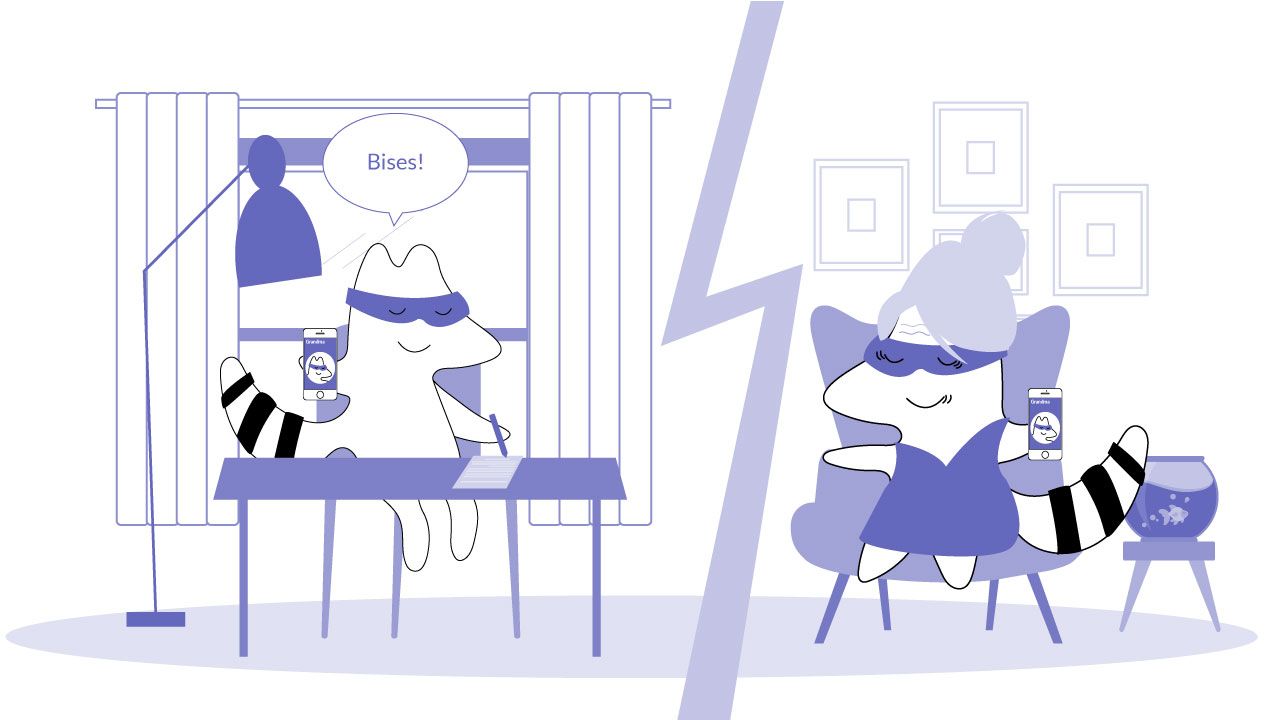
When ending the call, remember to stay polite, especially in formal conversations. Remember that politeness is key when talking to French people.
French
English
Salut.
Bye.
Allez, ciao | bises.
Alrighty, ciao | kisses.
Au revoir.
Goodbye.
Bonne journée, au revoir.
Have a nice day, goodbye. – formal
Other Important French Phone Call Vocabulary
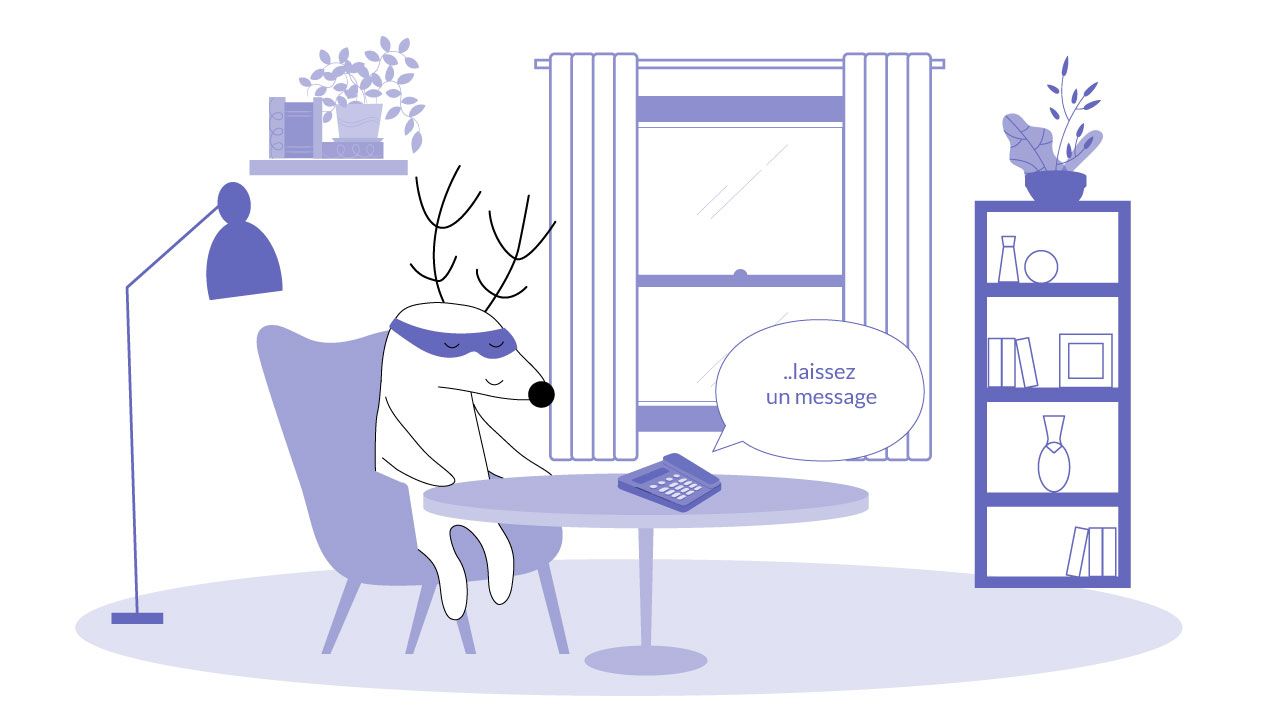
Of course, you also need to know some other French words related to phone calls to have an efficient conversation.
Here are some nouns:
French
English
Un annuaire
a phone book
Un appel en P.C.V.
collect call
Une cabine téléphonique
a phone booth
Un coup de fil
A phone call (informal)
Un mobile
A cell phone
Un numéro
telephone number
Un répondeur
answering machine
Un répertoire
directory, “contact’s” section
Un téléphone
a telephone
Une tonalité
dial tone
Une sonnerie (de téléphone)
a ringtone
And some verbs:
French
English
Appeler
to call
Composer un numéro
to dial a number
Décrocher
to pick up
Laisser un message
to leave a message
Patienter
to wait
Raccrocher
to hang up
Rappeler
to call back
Sonner
to ring
Keep Calm and Stick to French Etiquette
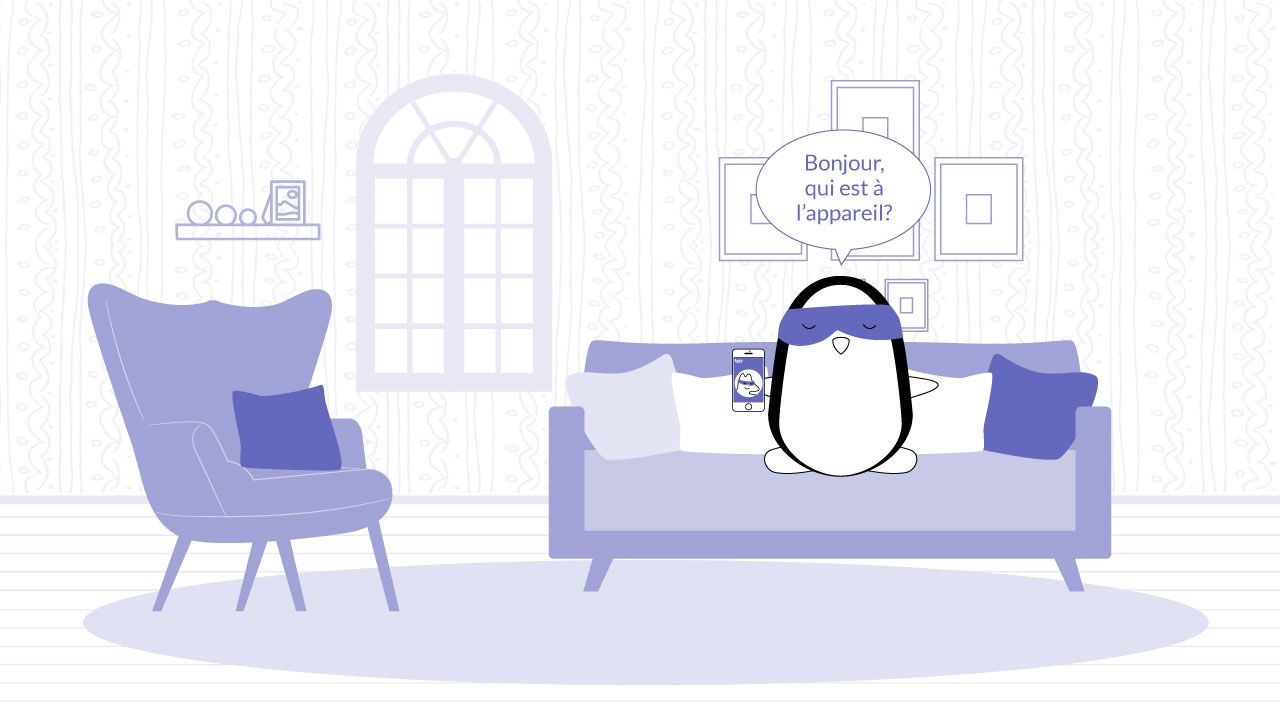
It's important to remember to stay polite and use proper etiquette when speaking on the phone in French. Remember that politeness is key, and it's often the small details that make the difference in a successful conversation.
Don't stress out if you don't understand something or if the connection is bad – take your time, try to remain calm, and ask the person to repeat if you didn’t hear something well. The French are known for their politeness, so following these simple tips will help you ensure that the conversation goes smoothly.
With all that said, don’t worry about making a phone call in French. Yes, it can be tricky, but with a little practice and some of the key vocabulary words we've provided, you'll be speaking like a pro.







